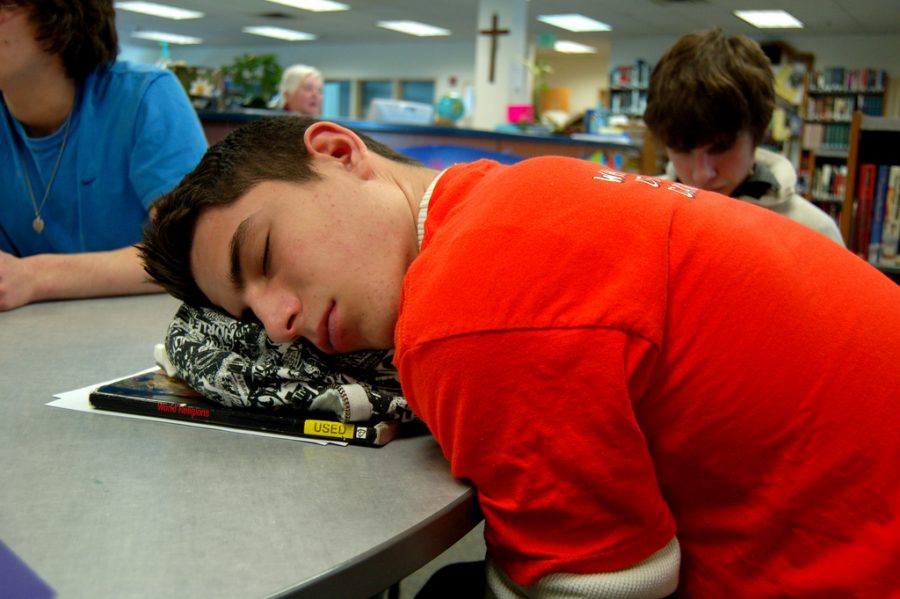Wildcats, Be Aware!
Improving Sleep Schedules
This student sleeping in the library clearly did not get enough sleep the night before. Lack of sleep can cause a student’s performance in school to go down and distract them from getting work done.
November 13, 2016
There are a lot of reasons why many teenagers do not get enough sleep every night. The distraction of technology, part-time jobs, sports, after school activities, and homework are all factors that affect how much sleep high schoolers get. Adolescents should be getting at least nine and a half hours of sleep, although studies show that they are getting seven and a half on average.
Along with environmental factors, there is a shift in brain activity during the years after puberty. Typically, there is a change in the internal clock of about 2 hours in an adolescent. After this shift takes place, a teenager who once went to bed at nine might not be able to fall asleep until around eleven. School also plays a huge part in the sleep schedule of teenagers; most high schools across the country start school around seven in the morning. Sometimes, this means high schoolers are waking up as early as five to get ready and travel to their school. Waking up this early can be especially hard if a teen is participating in after school activities and staying up late to get school work done. Junior Emma Kindsvatter said, “It’s very hard to get good sleep because I am on my feet every day from five thirty when I wake up until six when I get home from work. After that, I am expected to stay up and do homework until way late.” Clearly, the schedules of today’s typical teenagers are very demanding and busy.
Lack of sleep can also affect someone’s mood, behavior, academic performance, and cognitive ability. Sleep deprivation has a big impact on mood, making people irritable and easily frustrated. It has also been proven that sleep deprivation causes teenagers to participate in more dangerous activities such as drinking and drug abuse. Studies also show that if a teenager does not get enough sleep, they are more likely to fall asleep in class and perform poorly in school.
However, there are many ways that teenagers can improve their sleep schedule. Making a sleep schedule and keeping it everyday can be very beneficial. Oversleeping on the weekends and taking random naps at different times will mess up the internal clock that regulates the schedule. Another few things to avoid are technology right before going to bed and consuming a lot of caffeine or sugar. It is very important for teens to pay attention to their sleep schedule as it can affect their grades and overall health.












